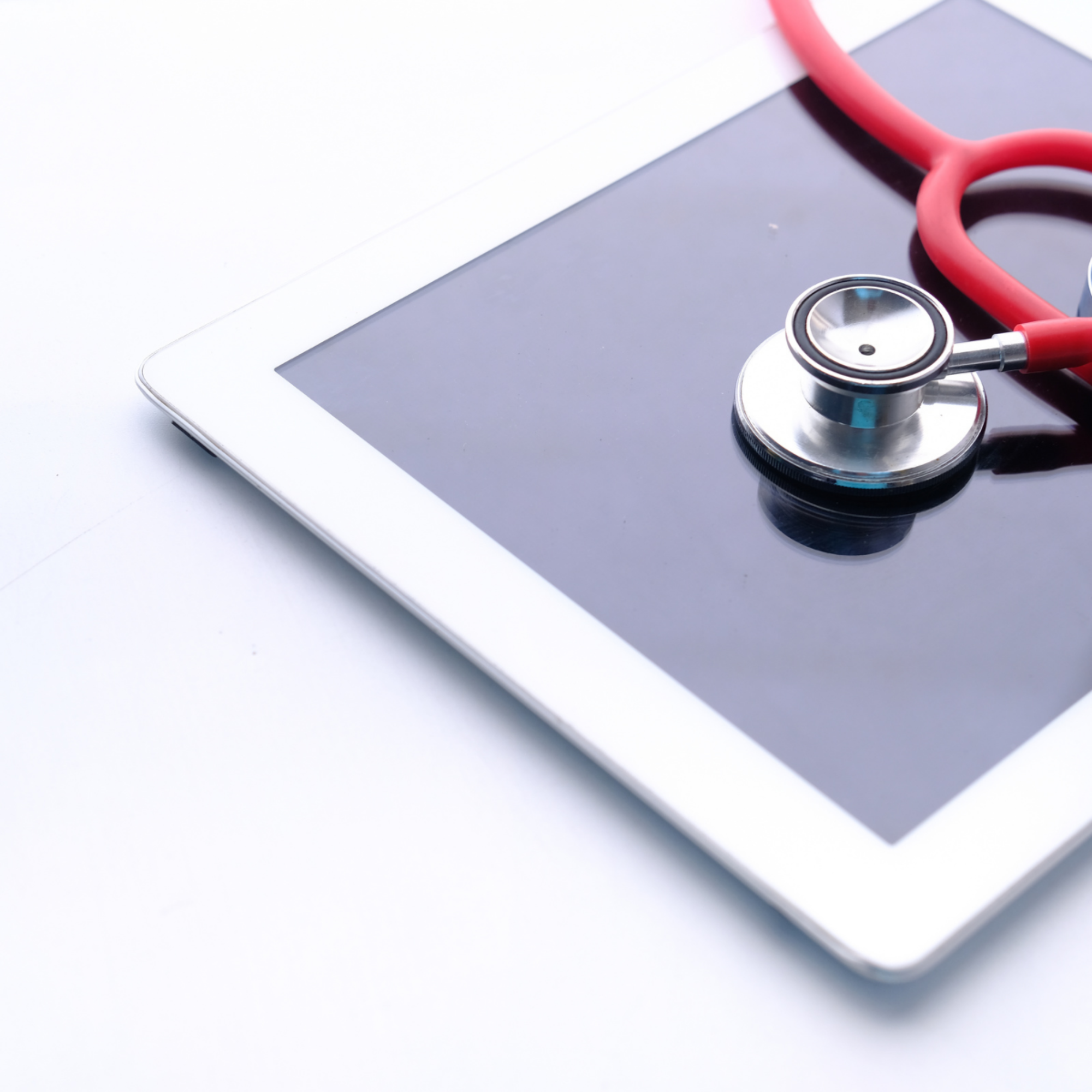When talking about innovation in health, it seems that one cannot avoid talking about Artificial Intelligence, especially in this Covid-19 area. This epidemiological context showed that the health industry is very resilient and is capable of evolution even in the hardest conditions, and the numbers are there to prove it :The ReporLinker Institute published that Health Artificial Intelligence market sits at 4.9 billion $ in 2020.
From patient follow-up to robot surgeons, Artificial Intelligence is aiming to cover the entire patient journey through the healthcare system.
For a clearer picture of the many applications of the Artificial Intelligence in Heath, we made a list of 4 actual applications of the artificial intelligence:
1. Imaging :
Using computer vision to identify health conditions in medical images has become perhaps the most widely referenced use case for AI in healthcare. It permits to capture less data and therefore image faster, while still preserving or even enhancing the rich information content of Magnetic Resonance images. This could be possible by training artificial neural networks to recognise the underlying structure of the images, and what types of things tend to be clustered together.
For example, analysis of brain MRI using machine learning has the potential to identify tissue changes which can indicate an early ischaemic stroke with significantly less time and greater sensitivity than a human reader.
2. Patient journey management
AI-based conversational interfaces can automate patient screening and navigation through the health system. This application is developed in two principal axes:
- Patients can share symptoms and questions via chat bots and then receive clinical guidance to orient them. This is especially helpful in rare diseases cases when patient wandering is sadly frequent.
- The second axe is the communication with patient to ensure their treatment compliance and adherence.
Nowadays, many AI solutions were created in partnership with patient associations and healthcare professionals. They assist patients by answering their questions about their disease, offer them personalized support and allow them access to a follow-up log. They can otherwise offer them the possibility of participation in clinical trials. Indeed, matching patients to clinical trials or identifying a cohort of patients for a trial is, in an almost cases, a tedious manual task. In this context, the development of a software platform that uses natural language processing (NLP) can be promising when it comes to ingest trial and patient information from unstructured sources and matches patients to trials for which they can be eligible.
These machine learning techniques can reduce the screening time for clinical trials and increase trial enrolments.
3. Drug delivery :
The most common applications of artificial intelligence (AI) in drug treatment have to do with matching patients to their optimal drug or combination of drugs, predicting drug-target or drug-drug interactions, and optimizing treatment protocols.
The development of these devices that can do automatic adjustment of drug concentration and adjust timing of drug release is a promising approach for improving the efficiency, safety and patient’s compliance.
For example, an automated system has been provided for monitoring of glucose and delivery of insulin by the integration of an insulin pump, a dose calculator and a glucose meter. All this with a wireless communication (Bluetooth®) which provides more flexibility for controlled drug delivery devices. The unit receives the data from the glucose meter, analyses it in real time with consideration of the external data (patient’s physiology, meals, exercises…) and regulates the drug release accordingly.
4. Remote Health
Although the pandemic has stimulated the use of the remote health, its application is still very basic. Indeed, remote health often simply means telechat with a clinician, but it will reach its full potential only when it gets associated with machine learning to become an important pillar in healthcare delivery. McKinsey estimates that up to $250 billion of healthcare spend will be virtualized in the coming years in the United States alone.
For example, the point of-care ultrasound (POCUS) has been shown that is efficient and effective. In fact, Abe et al studied 130 patients with aortic stenosis and reported that pocket ultrasound was able to discriminate moderate to severe aortic stenosis with sensitivity 84% and specificity 90% even without quantitative Doppler Information.
Such technologies can fundamentally alter bedside medicine and be indispensable to examine the patient at a granular level, making healthcare more accessible and affordable in the process.
Conclusion
The healthcare ecosystem has always been a dynamic and a resilient ecosystem despite its complexity and its rigid laws. This can be explained by the intimate connection that healthcare has with all its stakeholders.
When deployed thoughtfully, AI can, more than other tool, enhance this connection by upend long-accepted constraints about the healthcare system and therefore redefine the relationship between cost, accessibility and quality.
Nawres Bessassi, PhD and project manager junior WhiteLab
Salma Esseghir CEO WhiteLab
References:
Artificial intelligence in medical imaging: switching from radiographic pathological data to clinically meaningful endpoints ,Ohad Oren,Bernard J Gersh,Deepak L Bhatt Lancet Digital Health 2020; 2: e486–488 DOI:https://doi.org/10.1016/S2589-7500(20)30160-6
Evaluation of an artificial intelligence clinical trial matching system in Australian lung cancer patients, Marliese Alexander, Benjamin Solomon, David L Ball, Mimi Sheerin, Irene Dankwa-Mullan, Anita M Preininger, Gretchen Purcell Jackson, Dishan M Herath JAMIA Open, Volume 3, Issue 2, July 2020, Pages 209–215, https://doi.org/10.1093/jamiaopen/ooaa002
The significance of artificial intelligence in drug delivery system design, Parichehr Hassanzadeh, Fatemeh Atyabi, Rassoul Dinarvand, Advanced Drug Delivery Reviews,Volumes 151–152, 2019, Pages 169-190,ISSN 0169-409X, https://doi.org/10.1016/j.addr.2019.05.001
Application of mobile health, telemedicine and artificial intelligence to echocardiography,Karthik Seetharam, MD, Nobuyuki Kagiyama, MD PhD, and Partho P Sengupta, MD DM, Echo Res Pract. 2019 Jun; 6(2): R41–R52. https://doi.org/10.1016/S2589-7500(20)30160-6
https://entreprendredanslasante.substack.com/p/la-masterclass-ia-and-startups-sant

